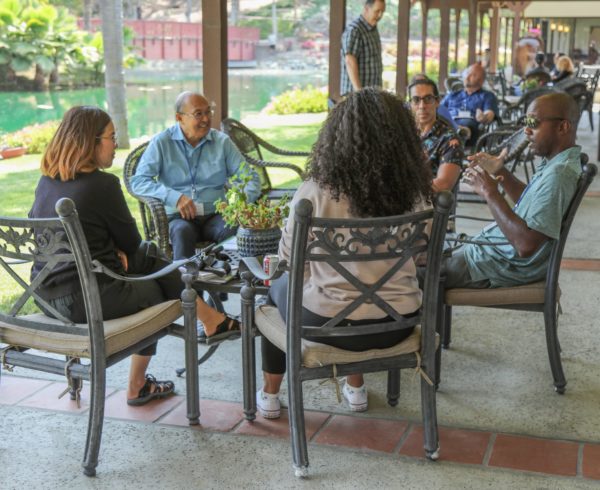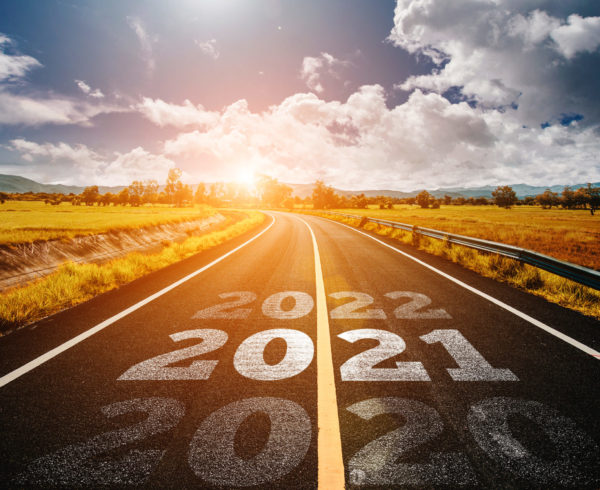Pandemic fatigue
It’s been just over two years since the novel coronavirus entered our world and nation. Many of us had hoped and assumed that 2021 would be the final year of the pandemic, but we find ourselves still facing the daunting reality that we may still have to endure it. With pandemic fatigue setting in, questions linger in many of our minds as we enter the third year of the coronavirus pandemic: Aren’t we free of Covid yet? What can practically be done to end the pandemic? How many new variants of Covid can we anticipate? Why aren’t vaccines doing their job? How much longer should we experience seeing loved ones, friends and coworkers suffer (sometimes die) of Covid? When will some semblance of normalcy be in sight?
In this latest blog article on the pandemic, I present five of the most commonly asked questions about Covid (from both vaccinated and unvaccinated alike) since the rise of the omicron variant fall of 2021. I answer each of these questions as thoroughly as possible while depending wholly on the expertise, knowledge and experience of medical professionals and experts and pointing out their guidance.
Lingering questions
1. Aren’t we free of Covid yet?
Pandemic fatigue has set in for all of us. We are all tired of Covid. We want to go back to normal. I get it. Living with varying degrees of isolation, masking up in every grocery store or public gathering place indoors, being generally extra cautious around others. It’s challenging. More than that, it has been extremely difficult and trying for those of us who have had family die or suffer tremendously from Covid. Some of us have also been infected and suffered. The emotional, psychological, and financial burden should not be underestimated. When will all this madness end?
There is a way out, but getting there requires that we first understand and acknowledge that we are still in it and why. By all definitions of what a pandemic is, we are still in it. Within just the last two months, tens of millions of people have become infected with Covid globally, and of those infected hundreds of thousands of people have died. Rapid spread and high death counts among multiple countries worldwide due to the delta and omicron variants is, by definition, a pandemic. The data is clear that we have not yet crossed over the mark that would give us genuine confidence that the pandemic is behind us.
Which leads me to the next question commonly asked?
2. What can practically be done to end the pandemic?
Medical experts have routinely suggested that the coronavirus pandemic, like any pandemic in the past, will not end until the vast majority of the global population has reached herd immunity. How does herd immunity happen then? First, we have to understand what immunity is. “Immunity,” according to John Hopkins Medicine, “is your body’s ability to protect you from getting sick when you are exposed to an infectious agent (“germ”) such as bacterium, virus, parasite, or fungus.” Herd immunity, then, is the ability of a population or community to be immune to a virus because those within the community have built up enough antibodies in their bodies to fight against and withstand the spread of a virus. There are three ways of obtaining herd immunity: 1) naturally, 2) through immunization (i.e. vaccination), or 3) a combination of both (natural and immunization).
Natural immunity that is formed once a person is infected with Covid is valuable and does work against reinfection. However, recent studies in 2021 have shown that people who were infected with Covid prior to vaccination who then recovered and subsequently got vaccinated against Covid-19 obtained what has been tagged as “super immunity.” This does not mean a breakthrough case is impossible. It simply means they obtained a combination of natural antibodies produced after infection plus the additional antibodies produced by vaccination. The same has been shown of those who were vaccinated, became a breakthrough case, and recovered. Their antibodies were much higher when compared to those who just had natural immunity from a prior infection and were not vaccinated or those who were vaccinated and had never been infected. So while natural immunity is important, it is not a reason to refuse vaccination. As more and more of our cities, states and nations become fully vaccinated and boosted in the coming months, we will get closer to reaching herd immunity.
Which leads me to the following question.
3. If ending the pandemic requires herd immunity, shouldn’t everyone intentionally get Covid?
Absolutely not. And here’s why: Theoretically speaking, it is true that if every person on planet earth got Covid today, we would likely be much closer to reaching herd immunity. But at what cost?
Literally, tens (if not hundreds) of millions of people worldwide would likely die from Covid. Since Covid preys on the vulnerable, it is those with weaker immune responses due to underlying health conditions who will suffer the most. Perhaps hundreds of thousands of people in my country alone would succumb to the disease. Why? The vast majority of Americans are not as healthy as we’d like to think, for one. Even if you do survive, many others will not. And what if you accidentally pass the virus on to a vulnerable family member who, because of age or underlying health conditions, would be less likely to physically, psychologically and emotionally fight the virus? So no, intentionally getting the disease is not the best answer. In fact, it’s inhumane and morally deficient. Yes, there are people who do this and yes not everyone dies, but some do. Globally as well as locally, the best option is everyone getting vaccinated.
Which leads me to the next question.
4. Aren’t Covid vaccines failing at doing their job? Why else would we need a booster shot?
Yes, it is true that after a period of time, weeks and months, the antibodies that form in our bodies from immunizations (Covid vaccines) or from natural immunity wain. But this is not a cause for alarm. This is quite normal. This is why we should get boosted.
In time, after most of the world is vaccinated and boosted, our collective (or herd) immunity will build to a point where the virus (as it now stands) will not spread at the same pace as it is doing today and the death rate will decrease dramatically. Once we reach herd immunity nationally and globally, Covid will become endemic. This does not automatically mean Covid will be obliterated from the earth. It simply means that the virus will exist in some form but will not be able to cause the kind of harm it once did.
However, to maintain this herd immunity, we will likely have to get periodic vaccinations (whether yearly or every six months) just like we do with influenza. Influenza (commonly known as “the flu”) is still around, but is not at pandemic level anymore. Influenza is now endemic, meaning it spreads but infection cases and deaths are considerably lower and steadier today when contrasted to their 1918 pandemic levels around the world. To keep it this way, we still get our yearly “flu” vaccines in the fall to build our immunity against the new variants of the influenza virus that are formed.
So no, vaccines are not failing. They are doing exactly what they were created to do…build immunity. Since immunity is not permanent as it relates to Covid (just as with influenza), we will still need further booster shots every six months to a year.
Which leads me to the following question?
5. Isn’t the omicron variant less severe? Why do I need to worry about it?
Saying that omicron is less severe is slightly deceptive because it gives the impression that it is harmless. Generally speaking, we can say it is less severe in terms of physical effects/symptoms, but more severe in terms of being extremely infectious (spreads quickly) when compared to earlier variants of the novel coronavirus. The truth is that omicron is the most infectious variant of the novel coronavirus since January 2020. Practically speaking, this means it spreads more easily and quickly among both the vaccinated and unvaccinated, which is a unique aspect of the omicron variant. A record number of breakthrough cases have occurred among the vaccinated, much more than with delta and other previous variants.
A rise in hospitalization is a key indicator of high community spread, and an extremely high number of hospitalizations occurred between November and January due to omicron in the US. Our nearby hospitals in Seattle had the highest number of Covid cases since the beginning of the pandemic. Omicron has also caused death. These factors strongly indicate that while omicron is “less severe” when compared to delta and earlier variants, it is bad enough to cause some very real damage.
As with the delta variant, those who are fully vaccinated and boosted against Covid-19 who become breakthrough cases routinely experience less severe symptoms from the omicron variant and are less likely to be hospitalized than those who are unvaccinated.
Sobering news if nothing changes
Let’s keep in mind why we’re in this predicament to begin with and what could potentially happen if herd immunity is not reached globally. Variants of the coronavirus, like delta and omicron, have continued to mutate as quickly as they have over the last two years due to three clear actions by a significant percentage of people around the world:
- Refusal to mask to protect oneself and others led the way to massive spread in the US and around the world in 2020 and 2021.
- Refusal to get vaccinated and boosted when the opportunity to get vaccinated became available in 2021.
- 1st world countries obtained more than enough vaccines for their own countries in 2021, but did not share them with developing countries as quickly and as aggressively as they should have.
These three reasons alone have given full permission to the coronavirus to spread and mutate as quickly and as powerfully as it has done over the last two years, and the fallout has been the deaths of hundreds of thousands of people in my country alone, in addition to causing the suffering of countless people who survived. Of those who died, many deaths were preventable.
While medical experts are hopeful that the omicron variant may be the last lethal strain, it is still in the realm of possibility that it could mutate again into a more powerful variant. According to Dr. Alex Greninger, assistant director of the UW Medicine Clinical Virology Laboratory, “If you give the virus enough time and replicative cycles it will sample a very large evolutionary space and find a solution to the problem we’ve presented it (which is vaccination and widespread immunity).” In other words, it is theoretically possible that a variant of the coronavirus could develop that evades our vaccines the longer we don’t achieve herd immunity on a global scale.
That is a daunting proposition but one within our power to avoid if we so choose.
A message to fellow Christians
The apostle Paul wrote this to the ancient church in Philippi:
“If our shared life in the king brings you any comfort; if love still has the power to make you cheerful; if we really do have a partnership in the spirit; if your hearts are at all moved with affection and sympathy – then make my joy complete! Bring your thinking into line with one another. Here’s how to do it. Hold on to the same love; bring your innermost lives into harmony; fix your minds on the same object. Never act out of selfish ambition or vanity; instead, regard everybody else as your superior. Look after each other’s best interests, not your own. This is how you should think among yourselves – with the mind that you have because you belong to the Messiah, Jesus:
Who, though in God’s form, did not
regard his equality with God
as something he ought to exploit.
Instead, he emptied himself,
and received the form of a slave,
being born in the likeness of humans.
And then, having human appearance,
he humbled himself, and became
obedient even to death,
yes, even the death of the cross.
And so God has greatly exalted him,
and to him in his favour has given
the name which is over all names:
That now at the name of Jesus
every knee within heaven shall bow –
on earth, too, and under the earth;
And every tongue shall confess
that Jesus, Messiah, is Lord,
to the glory of God, the father.”
This is our mandate. Following Jesus must mean that we look out for others and stop looking out for ourselves alone. Following Jesus means being known for suffering for the sake of others, not for causing others to suffer for the sake of selfish ambition as the apostle Paul described above. If we claim to follow Jesus, then whatever we got to do to look out for others and not just ourselves we should lean into that kind of life. That is Jesus’ way.
Much of the anti-mask, anti-vaccine, anti-science culture prevalent in a significant portion of our country is utterly self-centered. Tens of millions of Christians have also gotten on this bandwagon over the last two years. Statements from fellow Christians like “I have my freedom to fight for” and “It’s my body, I’ll do what I want” which fuel the anti-mask and anti-vaccine movement reflect this self-centeredness. Let’s be clear: selfish ambition is not Jesus’ way. It has nothing to do with Jesus’ teaching or following him.
I don’t think we can overestimate the negative impact that unmasked and unvaccinated Christians (influenced by very famous Christian pastors, US Senators and US Congressmen) have had on dramatically slowing down the process of ending the pandemic. Their persistence to care for their own interests alone have cost countless lives, even the lives of people within their own churches and families who died from Covid because of reckless choices. If this describes you in any way, I urge you to reconsider what Jesus said and what it means to follow him. May your decisions about masks and vaccinations be led by how we frame our lives around Jesus and his Way.
The choice is yours.
For updates on Covid cases and deaths globally and nationally see the following sites:
Centers for Disease Control Covid-19 Tracker
John Hopkins University of Medicine Coronavirus Resource Center
For more articles by Peter on the pandemic:
Covid-19 Pandemic: How to move forward
Perfect Storm: Global Pandemic and the murder of George Floyd
Why evangelicals are crossing party lines this election #2. Medical Science Matters
Article updated on February 4, 2022







